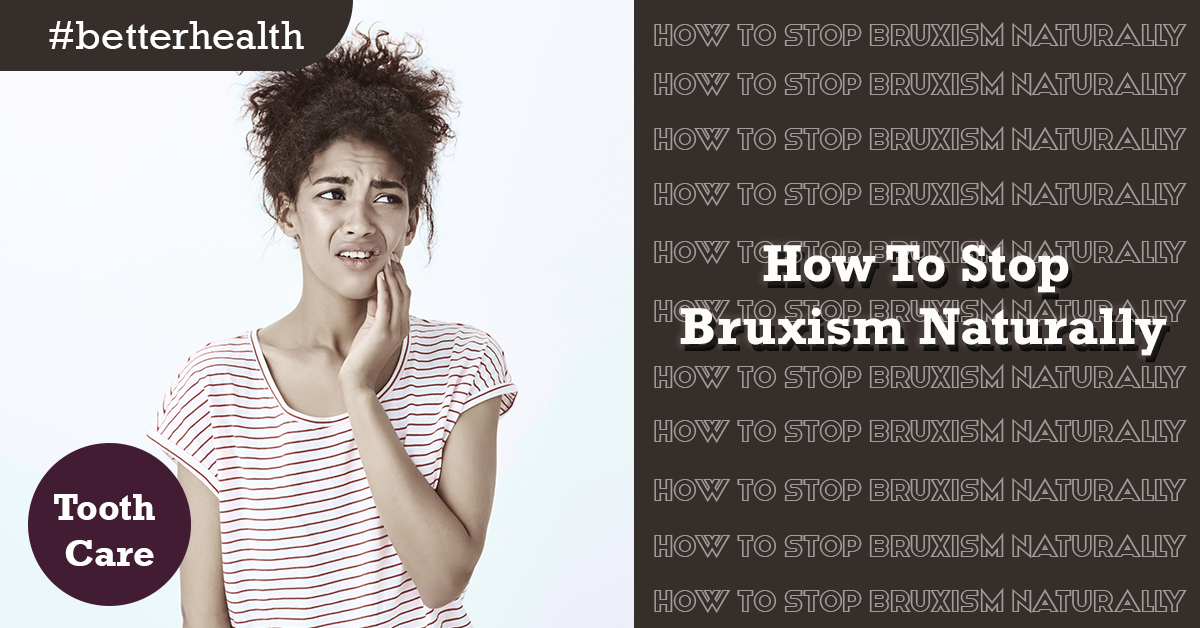How To Stop Bruxism Naturally( Step by Step)
How To Stop Bruxism Naturally: Unintentional teeth grinding and clenching is known as bruxism. This vigorous grinding takes place when a person is asleep and is known as sleep bruxism. Although it can affect people of any age, sleep bruxism is most prevalent in children, adolescents, and young adults.EnoughInfo.com

People frequently don’t realize they are grinding their teeth as they sleep, and they can exert up to 250 pounds of force. MSD Guides The Manual, which was initially released in 1899 as a modest reference book for doctors and chemists, expanded in size and scope to become one of the most popular and comprehensive medical tools for both professionals and patients.
There is no known way to entirely eliminate teeth grinding, although treatment can lessen the frequency, effect, and symptoms. Additionally, coping with sleep bruxism may be made simpler by home care advice.
FAQs & Answers on How To Stop Bruxism Naturally
1. Can drinking herbal tea help with bruxism?
Some people find that drinking herbal tea, such as chamomile or valerian root tea, can help reduce stress and promote relaxation, which may in turn reduce bruxism symptoms. How to Get Rid of Yellow Teeth (10 Best Methods)
2. What age does bruxism start?
A baby may begin to grind his teeth together when he initially begins to erupt his first set of teeth. This often starts to happen between the ages of 5 and 6 months, and bruxism at this stage frequently goes unreported since the teeth rub against the gums frequently and rarely make any noise.
3. How can my jaw be relaxed while I sleep?
Put the tip of your tongue in between your teeth if you discover that you clench or grind your teeth at work. You can learn to relax your jaw muscles by doing this. Holding a warm washcloth to your cheek in front of your earlobe will help you relax your jaw muscles at night.
Causes of teeth grinding (Bruxism)
The exact causes of bruxism are not entirely understood, but several factors have been identified that may contribute to the condition, including:
- Stress and anxiety: Emotional stress and anxiety are commonly associated with bruxism. People who are stressed or anxious may clench or grind their teeth as a way to relieve tension. How To Deal With Stress(Guide2023)
- Abnormal bite: If a person’s teeth or jaw are not aligned correctly, it can lead to excessive wear and tear on the teeth and contribute to bruxism.
- Sleep disorders: Bruxism is also commonly associated with certain sleep disorders, such as sleep apnea.
- Medications: Some medications, such as antidepressants and antipsychotics, can cause bruxism as a side effect.
- Lifestyle factors: Certain lifestyle factors, such as smoking, alcohol and caffeine consumption, and recreational drug use, have also been linked to bruxism.
- Medical conditions: Certain medical conditions, such as Parkinson’s disease and Huntington’s disease, can cause bruxism.
It is important to note that the causes of bruxism can vary from person to person, and in many cases, it may be a combination of several factors that contribute to the condition.
Symptoms of Bruxism
- Grinding or clenching of teeth: This is the most obvious symptom of bruxism, and it can occur during the day or at night while sleeping.
- Headaches: Bruxism can cause headaches, especially upon waking up in the morning.
- Jaw pain: Clenching and grinding the teeth can cause pain and discomfort in the jaw muscles.
- Tooth sensitivity: Over time, bruxism can wear down the enamel on the teeth, making them more sensitive to hot and cold temperatures.
- Tooth damage: Severe bruxism can cause damage to the teeth, such as chipping, cracking, or loosening.
- Earaches: The pain and pressure from bruxism can also cause earaches.
- Facial pain: Bruxism can cause pain and discomfort in the face, especially around the temples and cheeks.
- Sleep disruption: Bruxism can also disrupt sleep, both for the person grinding their teeth and for their sleep partner.
If you experience any of these symptoms, it is important to talk to your dentist or healthcare provider. They can help diagnose bruxism and suggest treatment options to help alleviate the symptoms. How To Remove Tartar From Teeth Without a Dentist
How To Stop Bruxism (Teeth Grinding) Naturally
There are several natural remedies that may help reduce or stop or teeth grinding. Here are some tips:
Reduce stress:
Since stress and anxiety are major contributing factors to bruxism, finding ways to reduce stress can be helpful. This may include exercise, meditation, deep breathing, or other relaxation techniques.
Practice good sleep habits (Very necessary):
Getting enough sleep and creating a relaxing sleep environment can help reduce bruxism. This may include avoiding electronic devices before bedtime, establishing a regular sleep schedule, and using a comfortable pillow.
Avoid caffeine, alcohol, and tobacco
These substances can increase the likelihood of bruxism, so avoiding or limiting their use may help reduce symptoms.
Massage and stretch the jaw muscles
Massaging and stretching the jaw muscles can help relieve tension and reduce bruxism. This may include using a warm compress, gently massaging the jaw muscles, or doing jaw exercises.
Practice good dental hygiene
Regular brushing, flossing, and dental checkups can help prevent tooth damage and alleviate symptoms of bruxism.
Use a mouthguard
A dental mouthguard can be worn at night to protect the teeth from damage caused by bruxism.
It is important to note that natural remedies may not be effective for everyone, and in some cases, medical treatment may be necessary. If you are experiencing severe or persistent symptoms of bruxism, talk to your dentist or healthcare provider about other treatment options. How To Treat Rem Sleep Behavior Disorder
When to see your doctor
You should consult your doctor or dentist if you get pain in your jaw, neck, or mouth as a result of teeth grinding. Your oral and sleep health can be seriously harmed by sleep bruxism, but a doctor can help you avoid more severe issues in the future. If you also have another medical issue, such as obstructive sleep apnea (OSA) or gastroesophageal reflux disease (GERD), a doctor or dentist can determine whether you need additional testing or treatment.
Conclusion
In conclusion, natural therapies including stress reduction, healthy sleep habits, drug avoidance, jaw muscle massage and stretching, proper tooth cleanliness, and the use of a dental mouthguard might alleviate bruxism symptoms. Treatment options for severe bruxism should be examined by a healthcare physician.
Recommended:
How To Treat Rem Sleep Behavior Disorder
How To Treat Minimal Change Disease (The Ultimate Guide)
How To Treat Rem Sleep Behavior Disorder




